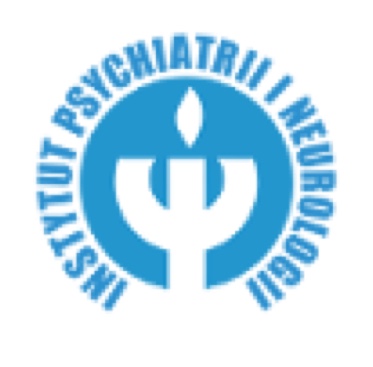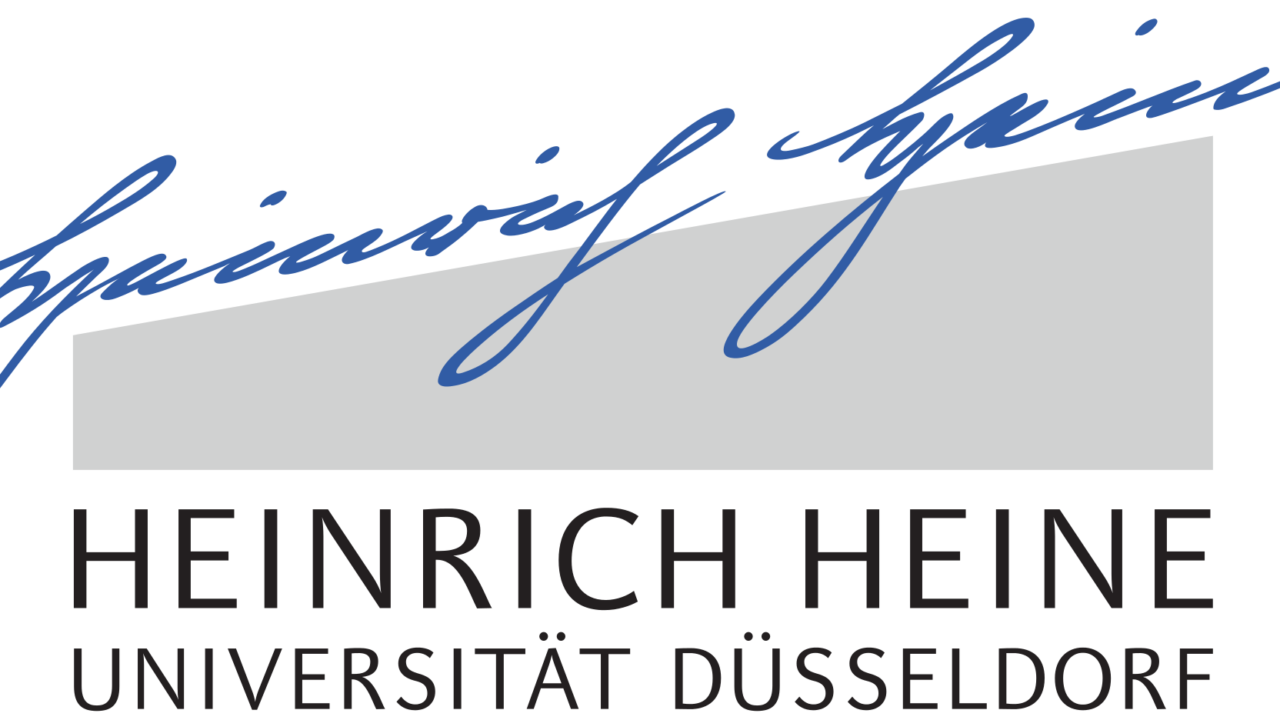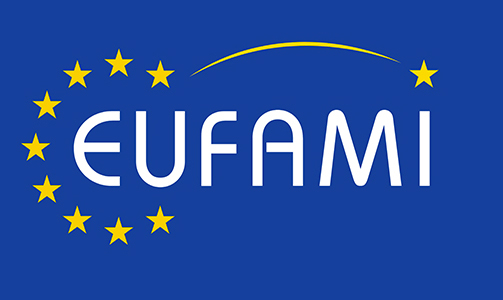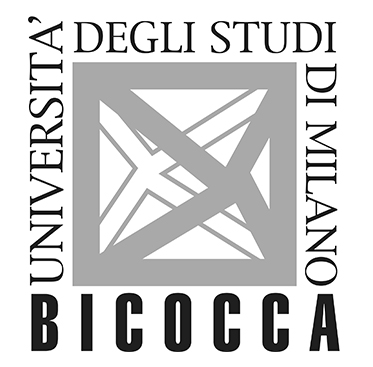Partners
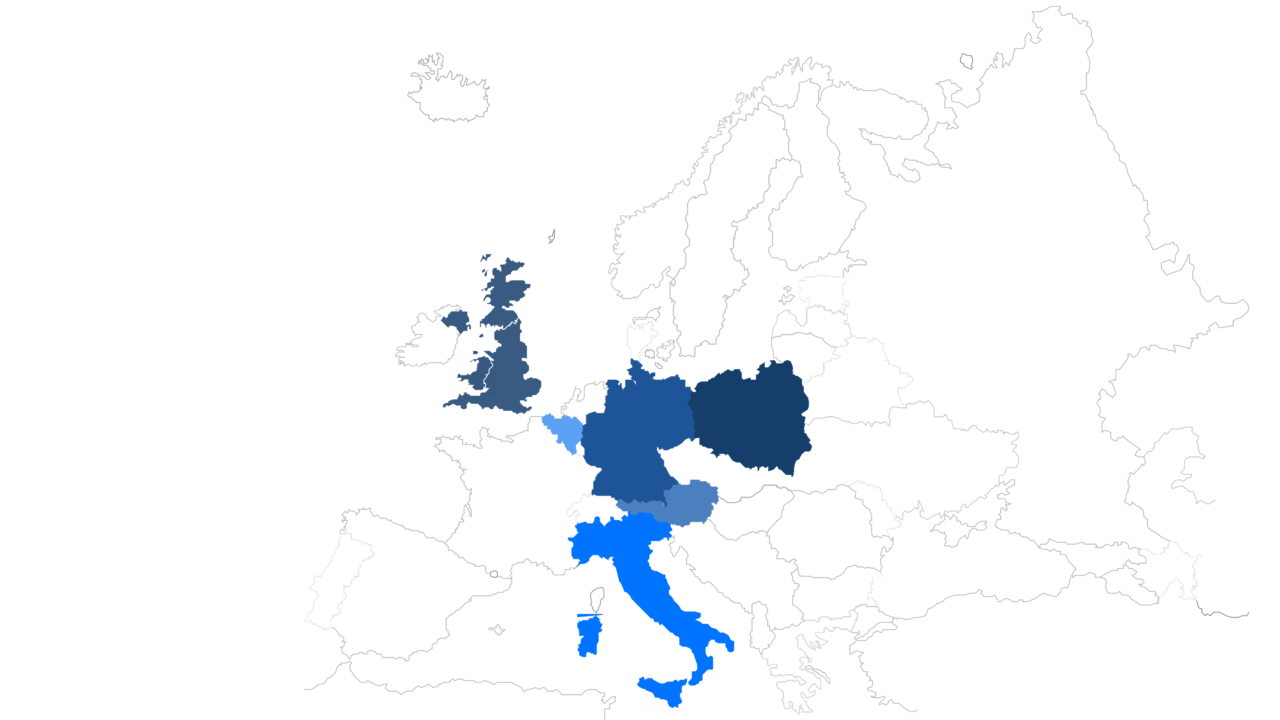
The EU-VIORMED consortium includes 8 partners from 6 European countries. It brings together experts from diverse fields including psychiatrists, statisticians, psychologists and ethicists.
The Istituto di Ricovero e Cura a Carattere Scientifico (IRCCS) Fatebenefratelli is a national centre for research and care of mental disorders and dementias, and has strong connections with leading academic centres worldwide. With 244 beds for inpatient activity, all in neuropsychiatry, it carries out intensive outpatient activity with about 4,500 persons with Alzheimer’s disease or associated disorders and 2,500 with mental disorders seen and treated annually. More than eighty full-time researchers work in preclinical and clinical labs, producing large number of papers published in peer-reviewed medical journals. The IRCCS Fatebenefratelli has won several grant applications funded by the European Union, including the neuGRID, outGRID, neuGRID4U, MILESTONE and has received funding from SANCO for the organization of an official European conference on Youth mental health. The IRCCS belongs to the St John of God Order, which runs three other large psychiatric facilities in Northern Italy, each including a large number of residential facilities hosting many patients with SMDs; one of these hospitals runs one of the new forensic facilities established in Italy after the new reform law on forensic psychiatric care.
King’s College London (KCL) is one of the top 25 universities in the world (2016/17 QS World University Rankings) and among the oldest in the UK. In the 2014 Research Excellence Framework (REF) King’s was ranked 6th nationally in the ‘power’ ranking. Eighty-four per cent of research at King’s was deemed ‘world-leading’ or ‘internationally excellent’ (3* and 4*). The university is in the top seven UK universities for research earnings and has an overall annual income of more than £684 million. King’s has a particularly distinguished reputation in the humanities, law, the sciences (including a wide range of health areas such as psychiatry, medicine, nursing and dentistry) and social sciences including international affairs. The Institute of Psychiatry, Psychology & Neuroscience (IoPPN) is a School of King’s College London and is Europe’s largest centre for research and postgraduate education in psychiatry, psychology, basic and clinical neuroscience. The IoPPN is world-renowned for the quality of its research and, for psychiatry and psychology, is the most cited research centre outside the US and the second most cited research centre in the world – as ranked by Thomson ISI Essential Science Indicators. In the 2014 Research Excellence Framework it was judged to have the second highest research power in the UK for Psychology, Psychiatry and Neuroscience, and the impact of its work was 100% world leading or internationally excellent, and its research environment judged as 100% world leading.
The Medical University of Vienna (MUW) is one of the traditional medical training and research facilities in Europe. It is today the largest medical training institute in the German-speaking area with over 8,000 students. The Clinical Division of Social Psychiatry of MUW has a very long experience in research and teaching about social aspects of mental illness and of service evaluation. This clinical unit has 88 inpatient and day-hospital beds as well as several outpatient clinics. Research instruments for service planning such as needs assessment have been developed and are used in numerous countries worldwide. In addition, comprehensive studies in psychiatric epidemiology have been performed for more than 25 years. Schizophrenia is one of the major diagnostic groups in research and clinical work. All this research was the basis for developing innovative services for the mentally ill and for giving advice to policy makers to improve health care systems. For more than 25 years there is a close clinical and scientific collaboration with “Justizanstalt Goellersdorf”, a high-security hospital and the second largest forensic psychiatric units providing 130 forensic beds (i.e. about 15% of all forensic psychiatric beds in Austria).
The Central Institute of Mental Health (CIMH) in Mannheim, Germany, is a globally-recognized centre of modern psychiatry, uniting four medical departments, with a total of 326 inpatient and day-clinic beds and a large research department for all aspects of mental health. The CIMH, in co-operation with national and international institutions, has achieved outstanding accomplishments in mental health research. The CIMH research aims at developing new treatments for mental disorders of all kinds and age-groups, along with improving established therapies and care strategies. In its research, the CIMH uses a translational approach: basic research aimed at identifying neurobiological mechanisms by taking into account that in mental disorders biological, psychosocial and behavioural processes do interact. The research activities link experimental medicine and mechanistic neuroscience research. Several research teams address the manifold aspects of mental health service provision and forensic psychiatry, as represented by the CIMH-members of this application.
The Institute of Psychiatry and Neurology (IPiN) in Warsaw is a leading national scientific centre in Poland specialized in the development of new methods of treatment and rehabilitation of psychiatric and neurological disorders, and promotion of scientific and clinical research. Scientific activities focus on organization of psychiatric and neurological healthcare, genetics, alcohol and drug abuse, psychopharmacology, psychotherapy, neurochemistry and forensic psychiatry. The Institute is also a leading hospital providing care to patients with mental and neurological disorders and also serving as a nationwide consulting and treatment centre. The object of the Institute is to conduct scientific research on disorders of the nervous system, to coordinate the therapeutic activities in the field of psychiatry, neurology and neurosurgery, to organize trainings in that area and translate the results of research into clinical practice. As a scientific institution the Institute collaborates with over 50 centres abroad, and has been designated by WHO as a Collaborating Centre for Research and Training in Mental Health. The Department of Forensic Psychiatry (DFP) also contributes in preparing several legal acts related to health care system (like Mental Health Act 1994) and plays the significant role in creation of a new National Program of Mental Health. The Department of Forensic Psychiatry (DFP) is one of several clinics in IPiN and has scientific and clinical responsibilities. The research interests include: the bio-psycho-social model of the causes of offences; aetiology, social consequences and predictors of violence; clinical and psychological determinants of re-offense in forensic patients; aggressive behaviour of people with mental disorders; the effectiveness of the security measures used in psychiatry. DFP also conducts education, annually organizing training courses and internships in the field of forensic psychiatry for doctors specializing in psychiatry, psychologists and psychology students. DFP also runs a medical ward of forensic psychiatry with 60 beds.
The Heinrich Heine University Düsseldorf was founded in 1965 with the medical faculty dating back to1907. Today around 30,000 students study at a modern campus under conditions ideally suited to academic life. The university’s departments enjoy an excellent reputation due to an exceptionally high number of collaborative research centres. The Heinrich Heine University (HHU) is divided up into five faculties which are all located on one campus. The oldest one and core of the university is the Faculty of Medicine. The Faculty of Medicine achieved international recognition when leading practitioners pioneeringly integrated basic research and clinical practice. Today, the Faculty of Medicine comprises 31 institutes, 30 clinics, and two central and fosters close cooperation with several associate institutes (LV Rheinland, Institute for Environmental Health Research (IUF), and Research Centre Jülich). Research at the Department of the History, Philosophy and Ethics of Medicine is traditionally and institutionally linked to both the medical and the philosophical faculty. Research projects include projects on medical ethics and history of medicine funded by the German Research Foundation (DFG), the federal ministry of education (BMBF) and other foundations and research partners including scientific associations.
The University of Milano Bicocca was founded as autonomous organization on June, 10th 1998, and was established at the aim of making multidisciplinary research the strategic foundation of all institutional activities. This University has been recognized the 1st best University with less than 50 years in Italy (Times Higher Education rankings, 2015). Research is meant as expansion of knowledge and a link with an international dimension. The University Department of Medicine and Surgery provides an environment that strongly supports and encourages rigorous scientific research projects. The researchers of Department of Medicine and Surgery of University of Milano Bicocca have a long experience in European projects in the field of health (e.g. ORION), and won several grants, among which PADDI Study-Psychiatric and Addictive Dual Disorders in Italy in Mental Health settings; PADDI-MIRROR Study-Psychiatric and Addictive Dual Disorders in Italy in Addiction Therapeutic Communities; D-ARIANNA Digital-Alcohol RIsk Alertness Notifying Network for Adolescents, and MILESTONE, (Managing the Link and Strengthening Transition from Child to Adult Mental Health Care. Funding by the European Community‘s Seventh Framework Programme (FP7/2007– 2013).
The European Federation of Families of People with Mental Illness (EUFAMI) is an international non-profit organization, which represents all family members of someone affected by severe mental ill health at European level. Their purpose is to see that their rights and interests are protected and promoted alongside the rights and interests of their loved ones. As a pan-European organization we enable our 36 national member organizations in 23 different countries to act jointly at a European level, combining efforts and sharing experiences. We develop innovative support and empowerment programmes for family members of persons with severe mental health problems, as well as ensuring that they have a voice in research and in the development of policies that affect them.

Giovanni de Girolamo, MD, Psychiatrist. Former Scientific Director of P1 IRCCS and currently Head of the Unit of Psychiatric Epidemiology and Evaluation. From 1988 to 1994, he served at the Division of Mental Health of WHO in Geneva. From 1998 to 2001 he was the Coordinator of the National Mental Health Project, based at the Italian N.I.H. in Rome. He has set up and directed several multicentre research projects; he has authored 345 publications, including 40 volumes, 237 articles and 68 book chapters. He has a H-index of 73 (Web of Science). He has set up and directed the VIORMED project, the largest cohort study on forensic psychiatry ever conducted in Italy, and has published other papers in this area.

Laura Iozzino, degree in Neuroscience and Neuropsychological Rehabilitation and PhD in Neuroscience, Psychiatric and Psychological Sciences. She is a researcher at the St John of God Clinical Research Centre in Brescia, where she collaborates in relevant European and national projects, including VIORMED. She is co-author and author of publications in peer-reviewed journals, and reviewer for some international journals.

Cristina Zarbo, master’s degree and PhD in Clinical Psychology, is a researcher at the St John of God Clinical Research Centre in Brescia where she collaborates for EU-VIORMED project and other relevant national and international projects. She is co-author and author of several publications in peer-reviewed journals.

Clarissa Ferrari, degree in Statistics and PhD in Statistical methodology for scientific research. She is currently the head of the service of statistics at the St John of God Clinical Research Centre in Brescia. She has been the leading statistician of several European and national projects (including VIORMED). She is co-author of several publications in peer-reviewed journals and acts as referee for some international journals.

Ambra Macis, master degree in Statistics (Health and Epidemiological Statistics). She collaborates in the service of statistics at the St John of God Clinical Research Centre in Brescia. She is involved in the national project VIORMED (Violence Risk and Mental Disorders

Marco Picchioni, Forensic Psychiatrist, is a Senior Lecturer in Forensic Psychiatry at the Institute of Psychiatry, Psychology and Neuroscience, King’s College London. He has with his own research group focused on looking into the origins of violence in schizophrenia and violence risk assessment in schizophrenia and personality disorder. Using principally case-control and cohort designs, this work has explored the underlying neurobiology of schizophrenia, and the origins and nature of the links between schizophrenia and violence. He has over 100 publications and an h-index of 30.
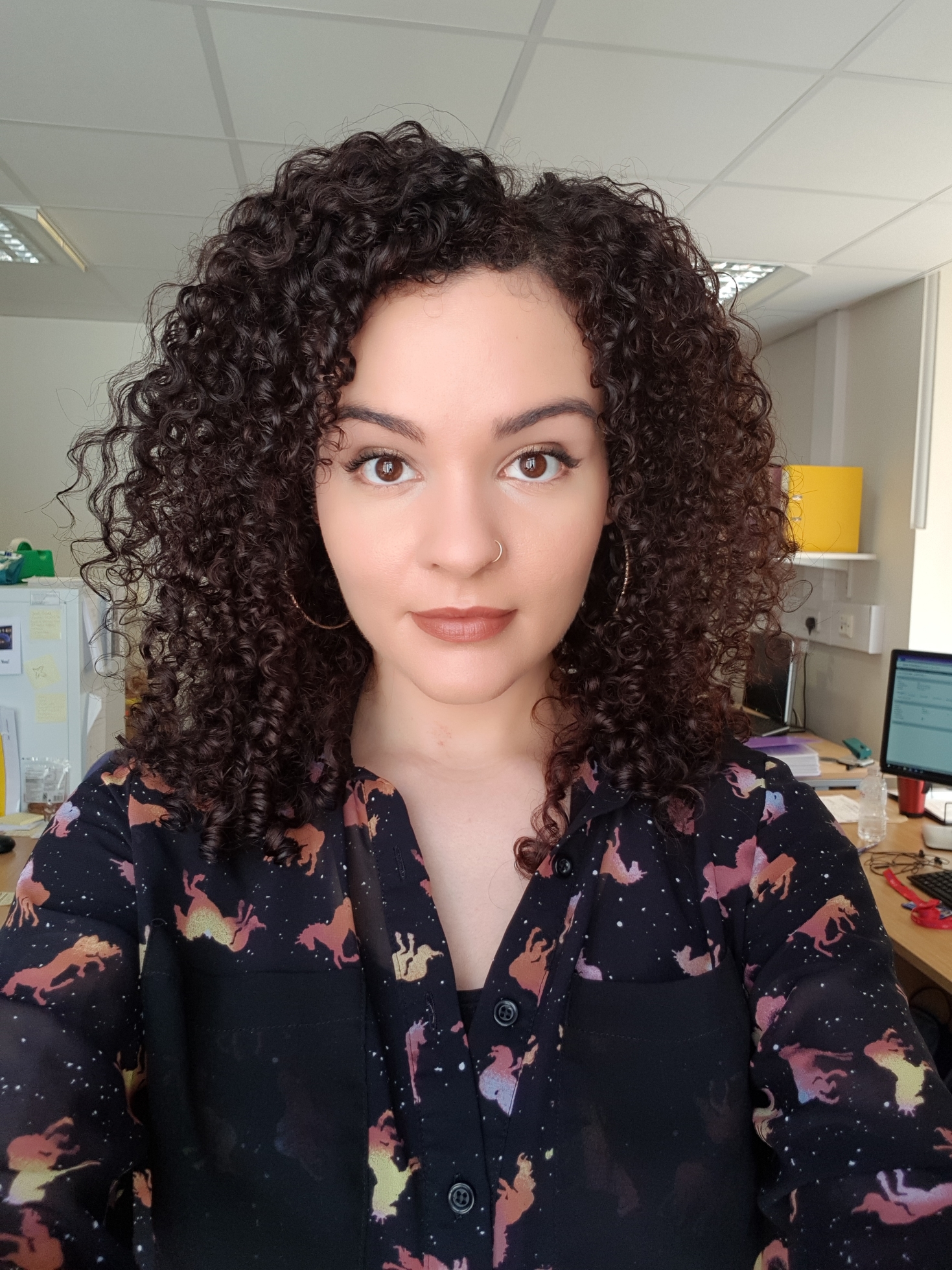
Rebecca Ruiz is a researcher at the Institute of Psychiatry, Psychology and Neuroscience, King’s College London. Her previous work includes fMRI studies investigating reward processing, learning impairments, and empathic accuracy in schizophrenia.

Hans Joachim Salize, PhD, Professor of Psychiatric Epidemiology is head of the Mental Health Services Research group at the Central Institute of Mental Health in Mannheim, Germany. He was trained as a sociologist and is involved in psychiatric research for 30 years. His main research field focusses on the manifold aspects of service provision for the mentally ill, in particularly in high-risk or neglected groups such as mentally ill offenders. Together with Harald Dressing, he was principal investigator in a series of European studies analyzing the legal frameworks in EU Member States for civil detention of mentally ill, forensic psychiatry and prisoners suffering from mental disorders. He has published numerous papers and several books on these issues.

Harald Dressing is Professor of Forensic Psychiatry at the University of Heidelberg and Head of the Department of Forensic Psychiatry at P3 MANN. His clinical activities include the assessment and treatment of mentally ill offenders and the provision of expert opinions in criminal and civil proceedings. His research activities include fMRI studies on paedophilia and psychopathy, sexual abuse of minors, intervention strategies for stalking victims and stalkers, comparative studies on legal frameworks in forensic psychiatry, studies on compulsory admission and compulsory treatment in psychiatry, mental Health in Prison, stigma research. Harald Dressing has written more than 200 peer reviewed publications and 7 monographies

Andrea Giersiefen is a trained social worker. She gathered more than five years of practical work with mentally ill people. In the last five years she was working as a social scientist at the Frankfurt University of Applied Sciences. She entered the VIORMED project in spring 2018.

Johannes Wancata, chairman and full professor of social psychiatry at MUW and Head of the Clinical Division of Social Psychiatry. Main research areas are mental health services research and psychiatric epidemiology. Guest professor at Gothenburg University, Sweden (2003), president of the International Federation of Psychiatric Epidemiology (2011-2015), Editor of “Social Psychiatry and Psychiatric Epidemiology” (since 2011). His research group developed two research instruments for the assessment of needs, which are internationally used. He authored more than 240 publications. He was collaborator and coordinator of several national and international multi-centre studies. He is member of the working group on mental health of the Austrian Ministry of Health, member of the Ad-hoc Advisory Group of the Austrian Minister of Justice and Governmental Expert on Mental Health and Well-being.

Thomas Stompe, MD, specialist in psychiatry and psychotherapy. Senior psychiatrist at the Clinical Division of Social Psychiatry, P3 MANN, where he teaches forensic psychiatry. Senior psychiatrist at the second largest forensic psychiatric unit in Austria. He published numerous research papers on forensic psychiatry. Since 2009 Editor of a series of books on forensic psychiatry. Member of the editorial board of several national and international journals. Since 2011 president of Austrian Society of Forensic Psychiatry.

Annemarie Unger, MD, specialist in psychiatry and psychotherapy. Senior psychiatrist at the Clinical Division of Social Psychiatry, Medical University of Vienna. Licensed specialist in Cognitive Behavioural Therapy. Clinical and research work focusses on chronic schizophrenia and drug addiction. Published international several research papers on these topics.

Andreas Reisegger is a medical doctor currently doing his specialization and PhD in psychiatry and forensic medicine. At this stage he is employed at a large Austrian forensic care unit, which is in charge of treating inmates that are legally innocent for reason of insanity. Mr. Reisegger has previously also worked in the field of general medicine and has been awarded a diploma in general medicine. His interest in forensic care arose out of an interest in ethics and the challenge of determining whether a patient can be held responsible for a criminal act or not.

Raimund Oberndorfer is a general practitioner and doctor-in-training at the Medical University of Vienna, Department of Psychiatry and
Psychotherapy, Clinical Division of Social Psychiatry. He joined the
EU-VIORMED project in October 2018 and is primarily involved in
recruiting and assessing patients in a large forensic psychiatric clinic
in Austria.

Janus Heitzman, director of the Institute of Psychiatry and Neurology, Warsaw. He was President of the Executive Board and presently the Vice-President of the Polish Psychiatric Association. His research focuses on consequences of exposure to traumatic stress, consequences of traumatic stress among the victims of Stalinism; criminal justice reforms and European integration in forensic psychiatry, risk of aggression and violence among psychiatric patients and sexual crimes by mentally ill. Awarded of 2 grants from the Polish Ministry of Higher Education on perpetrators of sexual crimes against children and reliability of repeated forensic evaluations of legal sanity. He is the author of 21 books and chapters and over 160 articles, most dealing with forensic questions and PTSD.

Inga Markiewicz, lawyer and psychologist at the Dept of Forensic Psychiatry, representative of IPiN at the Psychiatric Board for Security Measures at the Ministry of Health, member of the COST action on Long-Term Forensic Psychiatric Care.

Paweł Gosek, MD, clinical psychiatrist, member of the COST action on Long-Term Forensic Psychiatric Care. Clinical senior assistant in the forensic psychiatric department. Member of Polish Psychiatric Association, Polish Forensic Psychiatric Association, Honorary Member of IFMSA-Poland.

Heiner Fangerau is Head and Director of the Department of the History, Philosophy and Ethics of Medicine. He is a medical ethicist and medical historian with a strong research record in the history and ethics of modern medicine. He is a member of the scientific council of the German Federal Ministry of Family Affairs. His main research fields are research ethics, history and ethics of psychiatry and neurology, child and adolescence psychiatry and historical network analyses. A particular focus his research lies on the development of medical diagnostics and the public understanding of diagnostics. Current works included child wellbeing and the history and ethics of forensics. He has written several papers on medical ethics and history of medicine for international journals and books, published several books and he has led several research projects on a national and international basis.

Vasilja Rolfes, Ethicist and philosopher at the Department of the History, Philosophy and Ethics of Medicine. Expert in medical ethics and issues of stigmatization by diagnoses.

Chantal Marazia works as a medical historian at the Department of the History, Philosophy and Ethics of Medicine in Düsseldorf. Her research interests focus particularly on the history and philosophy of psychiatry.

Miia Männikkö (FinFami) is the EUFAMI President. EUFAMI has a number of programmes supporting people affected by severe mental illness and the organisations representing them across Europe.

Rita Geerts is in charge of EUFAMI member administration and internal communications with the member associations. She is the first point of contact for member associations and external enquiries, provides support to external and social media communications and coordinates all administrative aspects of EUFAMI including project, personnel and office management.

Giuseppe Carrà is a tenure track researcher at Bicocca University and UCL-Division of Psychiatry (MD, MSc, PhD). He collaborated with European Commission (DG JUST, DG SANCO), EMCDDA, Italian Health Dept., United Nations (UNODC) being member of several experts’ panels and associations, such as the Association of European Psychiatrists, and the World Psychiatric Association. He has published articles for high-IF international journals and books, and won multiple grants for national and international research projects. He is in the Editorial Board of Substance Abuse, Journal of the Association for Medical Education and Research in Substance Abuse, and referee for various journals.

Cristina Crocamo, PhD, is a biostatistician at the University of Milano Bicocca, working also as advisor for medical data analysis. As a postdoctoral researcher in the field of addiction psychiatry, clinical epidemiology, and public health, she takes part in study design, risk factors identification, data modelling and risk estimation. She has also expertise in systematic reviews and meta-analyses with extensive knowledge of statistical methods. She has collaborated in European and national projects. She has co-authored several publications in peer-reviewed journals and she is referee for some international journals

Francesco Bartoli, PhD in Neuroscience at University of Milano Bicocca, has expertise in research protocol management, meta-analyses, observational studies, data management, and statistical analyses, especially in the topic of addiction psychiatry, biological psychiatry, psychopharmacology, and psychiatric epidemiology. He integrates clinical work and research interests, being the main author of several articles published in the psychiatry field. He is board member of the Italian Association on Addiction Psychiatry, and of the Regional and Early Career Psychiatrists sections of the Italian Society of Psychiatry.




